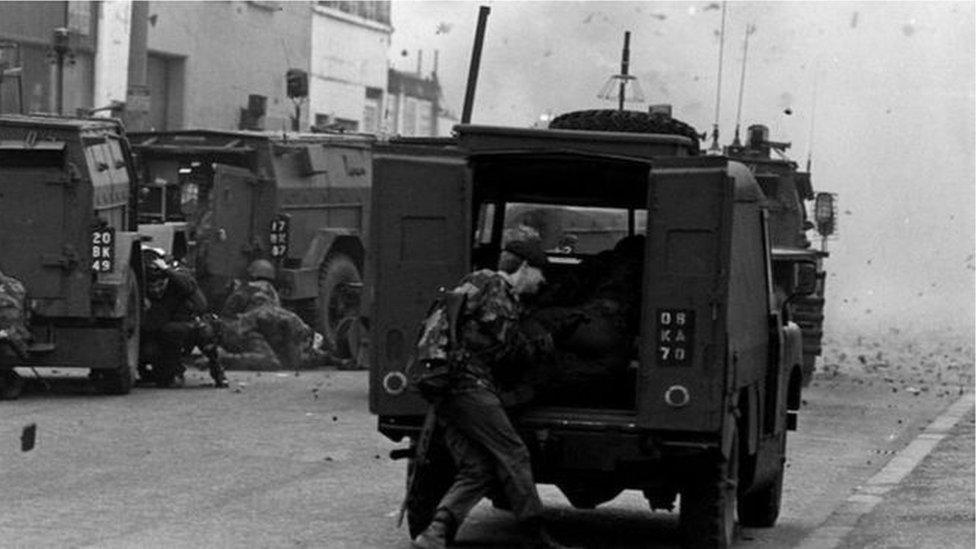Theresa May on the attack over Troubles' soldier cases
- Published
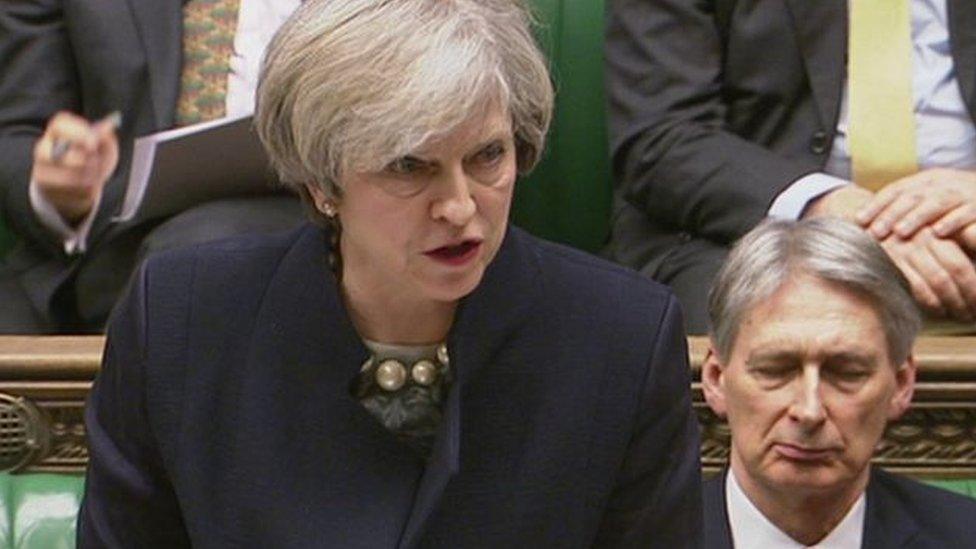
Theresa May said treating terrorists more favourably than soldiers or police officers would be wrong
The Prime Minister has attacked those she claims have made a business of dragging soldiers through the courts over incidents in Northern Ireland.
Theresa May said it was "appalling".
She told MPs the government would ensure any Stormont investigative bodies have a legal duty to be fair, balanced and proportionate.
Figures obtained by the BBC this month challenge claims that investigations into Troubles killings are unduly focused on those committed by the Army.
The PSNI figures show investigations into killings by the Army account for about 30% of its legacy workload.
The PM said on Wednesday it was essential the justice system reflects that 90% of killings in Northern Ireland were by terrorists.
She said treating them more favourably than Army or police officers would be wrong.
"The overwhelming majority of our armed forces serving in Northern Ireland served with great distinction and we owe them a huge debt of gratitude," she added.
"The situation we have at the moment is that there are cases being pursued against officers who served in Northern Ireland.
"What we want to see as we develop the legacy body under the Stormont House Agreement is a proportionate, fair and balanced approach to that."
However, Mrs May failed to respond to one of her own MPs who called for a statute of limitations for bringing prosecutions against soldiers involved in killings in Northern Ireland.
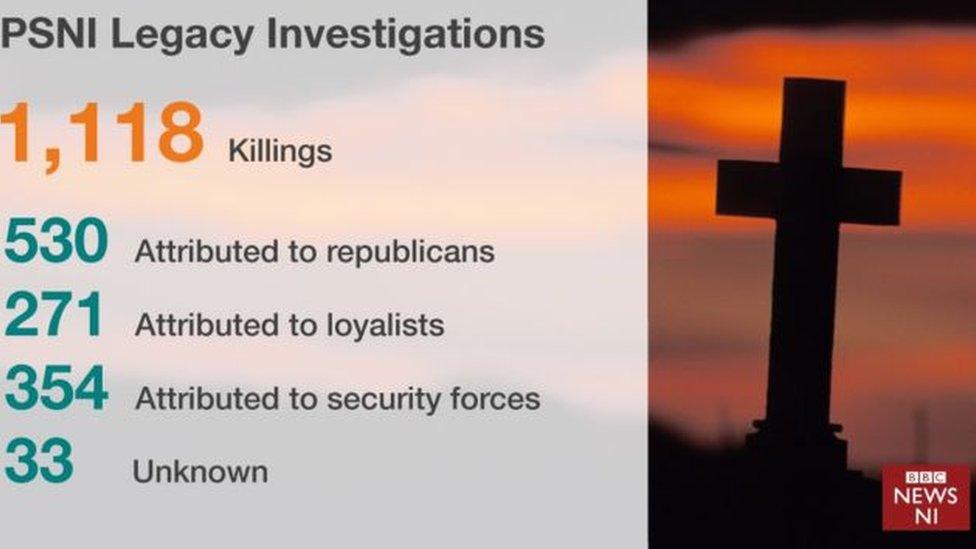
When the MP for New Forest East, Julian Lewis, told her that although her answer was welcome he did not think it went far enough, Mrs May said she was aware the government was looking at the issue as part of the Stormont House Agreement.
"What we are doing is ensuring the investigative bodies responsible for looking at deaths during the Troubles will operate in a fair, balanced and proportionate manner," she added.
"We want cases to be considered in chronological order and we want these prosecution protections enshrined in legislation.
"We are going to be consulting further on these proposals because we want to make sure that we do get this right."
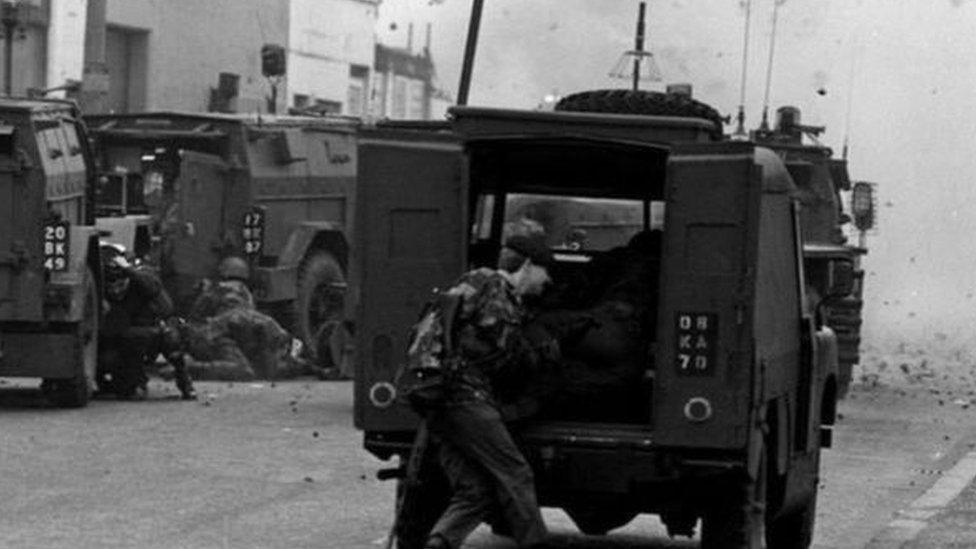
Soldiers in Northern Ireland pictured during the Troubles
Mr Lewis said there was no prospect of new credible evidence coming forward against veterans of the Troubles up to 40 years after the event, "yet people are starting to use the same techniques in Northern Ireland against them as were used against veterans of Iraq".
"Surely the answer has to be a statute of limitations preventing the prosecution of veterans to do with matters that concerned prior to the date of the Belfast Agreement," he said.
- Published2 February 2017
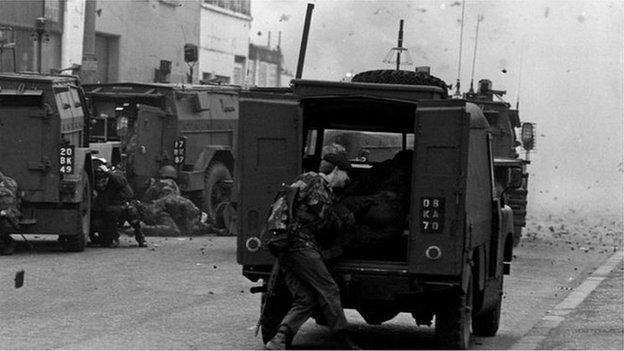
- Published26 January 2017

- Published25 January 2017
